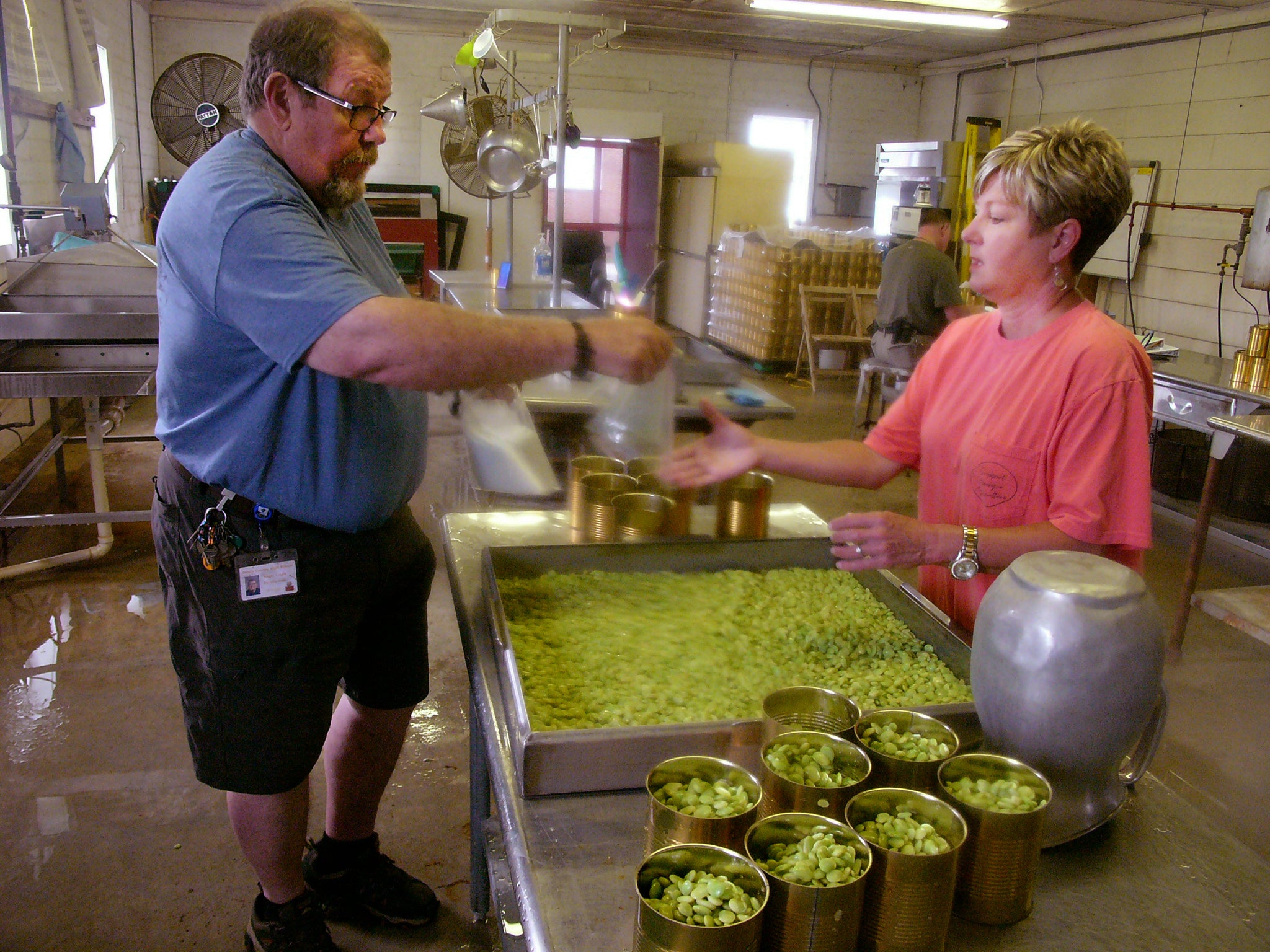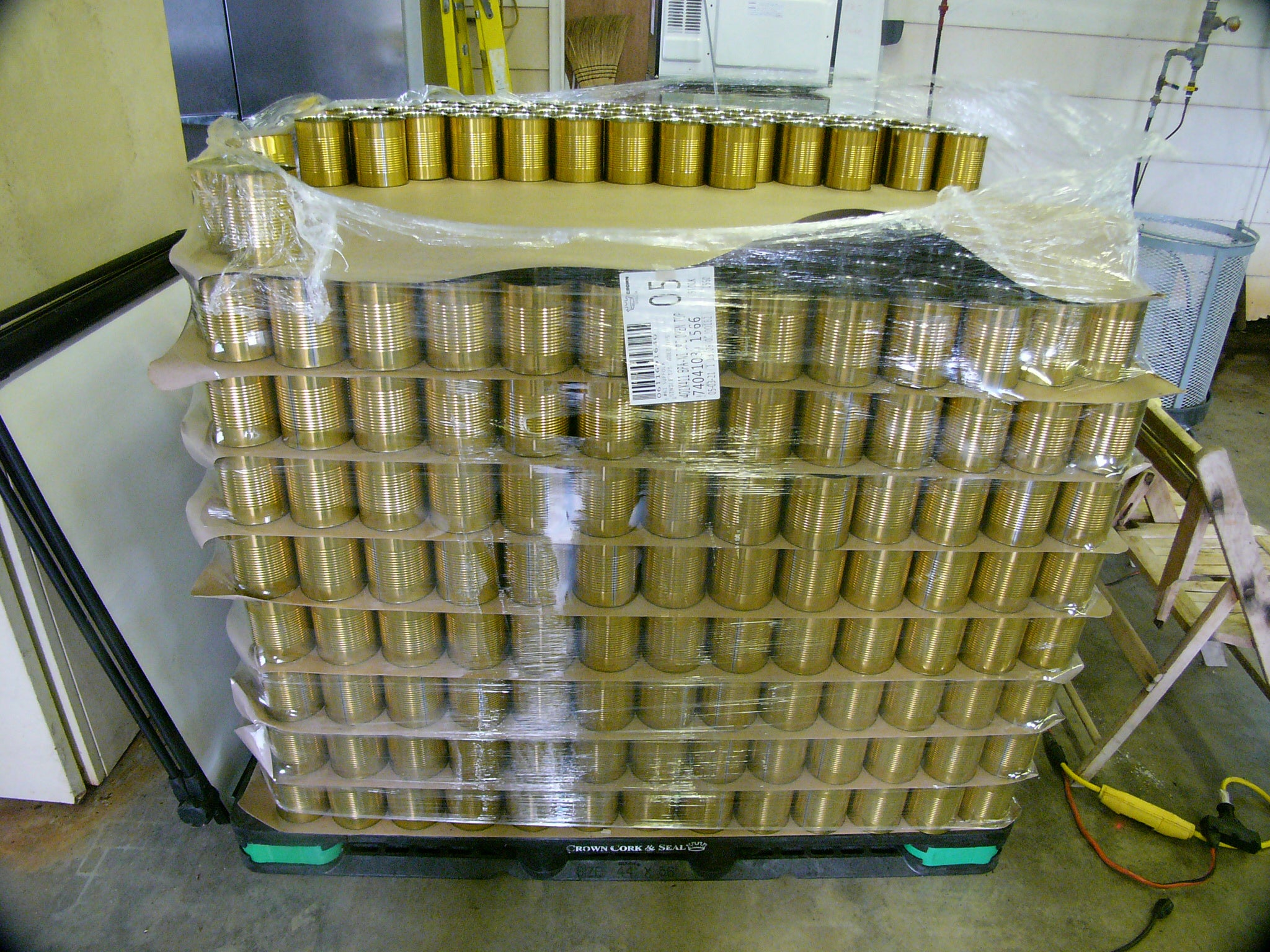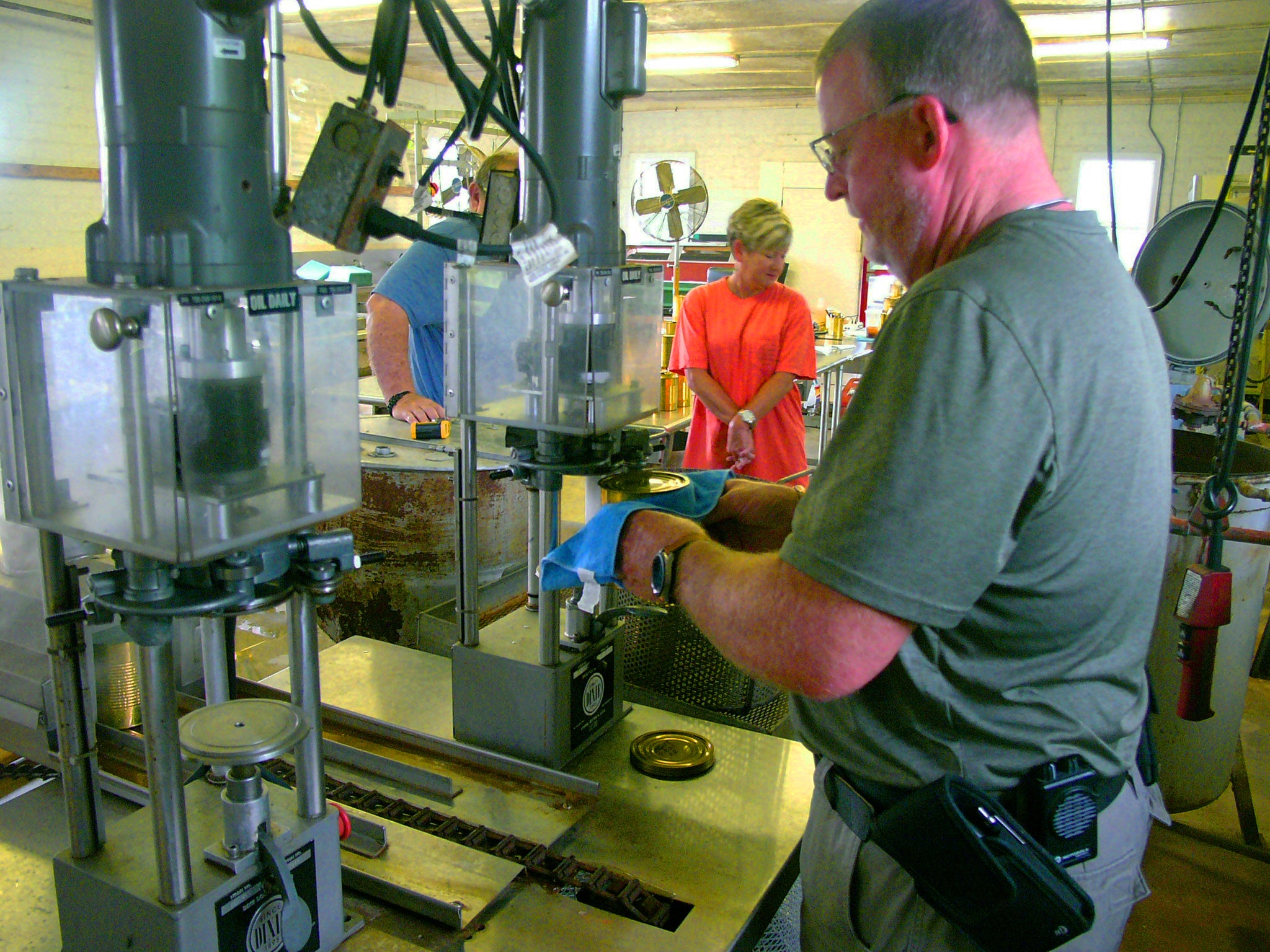Everything is in the Can The Dooly County High School canning plant is ready to can for you
Published 7:27 am Tuesday, July 13, 2021
|
Getting your Trinity Audio player ready...
|

Agriculture teacher Roger Teebles and volunteer Tonya Thompson scoop blanched butterbeans into cans. Photo by Neil McGahee
By Neil B. McGahee
Managing Editor
It’s nearly impossible to hear Roger Teeple speaking above the din of machinery. Everywhere hoses are swishing, big kettles are boiling and bubbling and cans clatter as they ride a conveyer to a machine that secures the tops.
Teeple, Dooly County High School (DCHS) food preparation teacher, is canning butterbeans.
“We will can just about anything,” he said. “We can beans, corn, tomatoes, jellies, jams, preserves — all kinds of fruits, fish, meat — you name it and we will can it.”
They even can Brunswick stew or any kind of soup.
Teeple and Dr. David West, the Young Farmer program director at DCHS, are both USDA certified canning plant operators.
“These butterbeans are first cooked to about 240 degrees, for at least two minutes” Teeple said. “The tops are also sterilized to insure the safety of the food.”
Soon after the blanching is finished, the cans take the wobbly ride to West who stands ready to seal the tops.
The plant is no Johnny-come-lately to Dooly County.
“From what I understand,” West said. “In post-World War 1, there was a big push for people living in rural America to be able to improve their diets and their food supply. The canning concept came along in the 1930s.
West said they are currently canning about 1,500 cans a year.
“This is part of the Science, Technology, Engineering, and Math (STEM) program,” West said. “It is funded by SPLOST dollars.”
Teeple said there are plans to move the canning plant to the DCHS campus, which will allow students to work. Now only adults may use the plant.
“Right now, our students can’t work in here due to safety issues, “Teeple said. “When we move to the new facility they will be able to work here safely.”
Prices are very reasonable,” Teeple said. “We charge $2 a bushel for blanching, $5 a bushel to shell, 95 cents per can, but if you bring your own jars, it’s 50 cents. If you bring your own jars it’s 50 cents.”




